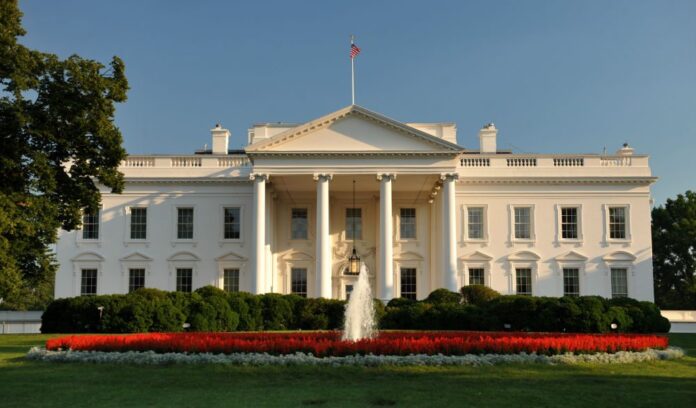17 companies set to partner with the U.S. government for R&D
The Obama administration announced new funding and private-sector partnerships for wireless research to build on the Federal Communication Commission’s approval of high-band spectrum for the development of “5G” services.
The $400 million initiative will be led by the National Science Foundation, which plans to invest $350 million over the next five years in testing platforms developed through an $85 million public-private partnership. The government plans to contribute $50 million to the partnership, with another $35 million in cash and in-kind support set to come from these companies and associations:
- AT&T said it will provide on-site mobile connectivity in the cities selected as testing grounds for advanced wireless platform research.
- Carlson Wireless Technologies plans to contribute equipment, technology and expertise in TV white spaces and dynamic spectrum sharing, allowing researchers to examine a variety of use cases including residential broadband and the “internet of things.”
- CommScope, in support of the testing platforms, said it will contribute connectivity solutions such as antennas, radio frequency cabling, cabinets, small cells and fiber optics.
- HTC plans to support the testing platforms by providing technical expertise, mobile devices, “internet of things” sensors and virtual reality systems.
- Intel said it will contribute its portable 5G mobile trial platform and server equipment to the testing platforms, to assist in research on millimeter wave, multi-antenna array, steerable beamforming, novel radio interface techniques and anchor-booster architecture.
- InterDigital plans to contribute financial support to the testing platforms and access to tools focused on areas like spectrum and bandwidth management, heterogeneous networks and backhaul.
- Juniper Networks said it will contribute software, systems and expertise to help with the design and architecture of multiple research platforms to advance orchestration and authentication of massively-scalable, massively-distributed IoT networks, as well as new approaches to secure these networks.
- Keysight Technologies is set to support the testing platforms with a range of current and next-generation cellular and wireless local area network hardware and software products, and with wireless experts to deliver consulting and testing assistance.
- National Instruments said it will provide equipment from its software-defined radio platform to support next-generation wireless communications research in areas like millimeter wave and massive multiple-input/multiple-output antenna technology.
- Nokia, together with Nokia Bell Labs, said it will provide financial contributions, research collaborations, governance and product platform support, and will focus on software-defined radios, IoT, remote sensing, millimeter wave, security, new use cases and applications, and dynamic spectrum sharing.
- Oracle is set to provide core network controls, analytics and network orchestration to researchers and help them understand the impact of subscriber behaviors, enhance orchestration and bolster security.
- Qualcomm plans to contribute financial support as well as engineering equipment and guidance to help enable the testing platforms to explore new and innovative communication systems.
- Samsung said it will contribute research design and engineering expertise to the testing platforms, with a particular emphasis on technologies for future wireless networks in the 28 GHz and other millimeter wave bands, as well as continued IoT enablement.
- Shared Spectrum is contributing to the testing platform’s technical expertise in dynamic spectrum sharing to support the design and architecture of research platforms.
- Sprint said it will support research and development to further the progress of advanced technologies. Sprint said it will also provide technical expertise on network design, use cases and architecture requirements for core and radio access networks and the devices that will access them.
- T-Mobile US in on the hook to provide technical expertise to the testing platforms, including staff engineering assistance or advice in the design and deployment of the testing platforms.
- Verizon Communications said it will contribute technical expertise to the testing platforms, such as staff engineering assistance in the design and deployment of the testing platforms, and in fixed and mobile systems, indoor and outdoor environments, and residential and commercial buildings.
- Viavi Solutions plans to provide test, measurement, assurance and optimization solutions for lab and field trials for network and services to enable next-generation IoT and always-connected technologies.
- The Alliance for Telecommunications Industry Solutions said it will provide technical assistance and staff time on the design and deployment of the testing platforms. ATIS also plans to support the testing platforms by identifying potential opportunities for research to be conducted on the platforms.
- CTIA said it will contribute engineering and technical assistance to help align industry research and development and university research to be conducted on the testing platforms with next-generation wireless networks, devices and applications.
- The Telecommunications Industry Association, is set to provide technical and engineering expertise in wireless network deployment, IoT, interoperability and software-defined networking. TIA also plans to assist with expanding industry awareness of the testing platforms.
These companies and associations are part of a consortium formed through US Ignite, a nonprofit focused on next-generation internet applications for the public good.
“We expect this effort will speed up the transfer rate of breakthrough ideas from university research to industry end users, overcoming what is sometimes called the ‘valley of death’ between basic research and commercialization,” said William Wallace, executive director of US Ignite. “This consortium will help to increase the number of potentially disruptive applications and the number of innovators and entrepreneurs in the wireless space.”
The White House said the initiative will enable the development of four city-scale testing platforms, and added it wants to apply the “lessons of 4G to the wireless challenges of today and tomorrow.” The administration said the U.S. has been able to emerge as a 4G leader by “avoiding a rigid, top-down, standards-setting process and technology roadmap” and that the wireless industry will continue to benefit from “sustained federal investments in fundamental academic research.”
Follow me on Twitter.

